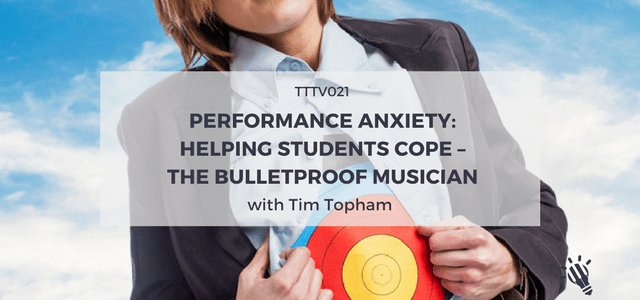
Most piano teachers encourage their students to perform as regularly as possible, but how many of us give our students strategies for coping with performance anxiety?
We’ve all seen students who were perfectly prepared for a recital or exam, simply crumble on the day. It wasn’t a lack of ability, or drive, but simply that performance anxiety got to them.
Some nerves are to be expected for any big performance, but we need to stop nerves from turning into anxiety. This is where Dr Noa Kageyama comes in. Noa runs a fantastic blog, The Bulletproof Musician, about performance anxiety and performing at your best.
I’m so excited to have Noa on the show today, and I know you’ll all get a lot out of his expertise and insights into the “mind game” of music performance.
There are a lot of podcasts you could be tuning into today, and I’m grateful that you’ve chosen mine.
Being a full-time teacher myself, I know how busy teachers are and how much time, effort and passion we put into our students. Sometimes, the last thing we want to do in our time off is listen to more piano teaching stuff! So, well done for using this time for self-improvement.
Whether you’re at the gym, on the bike or in the car, I know that you and your students will get lots out of what you learn in the long run. Just make sure you try out some of the ideas before they get lost in the business of your next lessons.
If you enjoyed today’s show, please share it by using the social media buttons on the left of the page.
Also, kindly consider taking the 60-seconds it takes to leave an honest review and rating for the podcast on iTunes. Reviews are extremely helpful when it comes to show’s ranking and you can bet that I read every single one of them personally.
Lastly, don’t forget to subscribe to the podcast on iTunes, to get automatic updates every time a new episode goes live.
Do you have any other strategies that Noa didn’t mention? Something that has helped you in your own performances?

